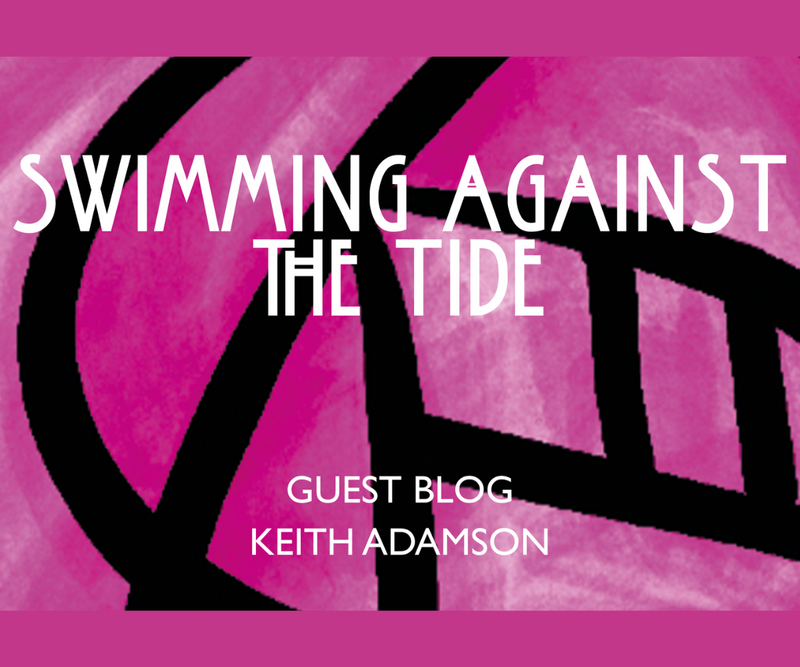Swimming Against the Tide
Keith Adamson Guest Blog

Keith Adamson Guest Blog
Writers are often asked “Why?” What makes a writer write? It’s a good question, and though we may not know the answer, most of us, I think, admit to a compulsion.
We need to express ourselves, perhaps because we are a little frustrated, never quite having the opportunity to say what we really think.
In a recent interview, Alan Bennet remarked that he doesn’t like writing. Hard to believe, because he is so brilliant at it. But what he finds most challenging is thinking up original stories, and prefers to respond to an outline envisaged by someone else.
I identify with this. I so admire imaginative authors who can come up with plots containing unexpected turns of events, and neat outcomes that lead to a satisfying conclusion.
A few years ago, struggling to find inspiration, I decided to try re-imagining the work of a famous author, changing the time frame, the setting, and the gender of the characters, but retaining the central idea – a love affair threatened by the inescapable pressures of the religion in which one of the protagonists had been raised.
The book was Brideshead Revisited, the relationship between Charles and Sebastian, and later Sebastian’s sister Julia, became one between Charlie and Amira, and then Amira’s brother Rachid. Sebastian’s alcoholism became Amira’s anorexia. The problem of Catholicism switched to that of Islam.
The story and its execution hardly bear comparison with Waugh’s iconic original, but it was so easy and enjoyable to write, having the path of events already laid out for me to follow.
This is the crux. Many of my initial ideas fall by the wayside, because there’s no spark to ignite the fire.
It feels like flogging the proverbial dead horse.
And then something emerges – the germ of an idea – that sounds like a possibility, and once I start writing I know instantly whether or not it’s going to work.
As a gay writer I am always tempted to explore storylines that illuminate the unique concerns of lives spent swimming against the tide, but in these enlightened times this particular well seems to have almost run dry, although there are many gay characters in modern fiction.
Keith Adamson
